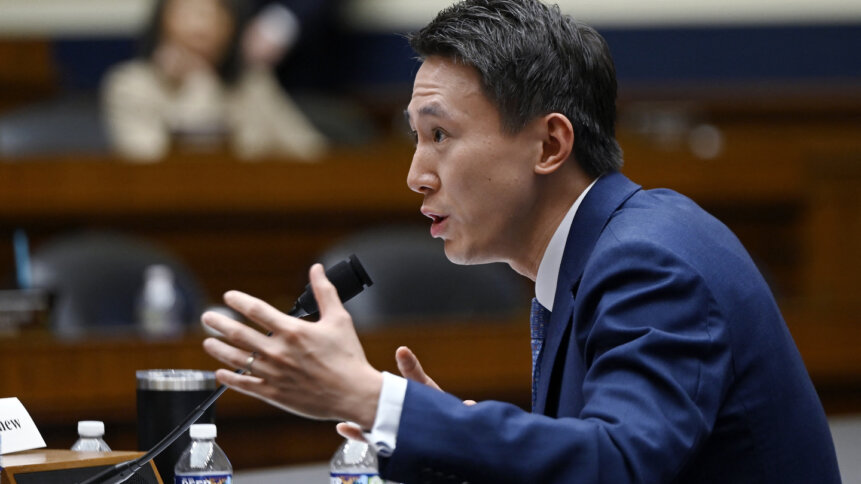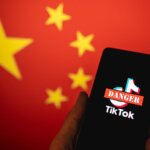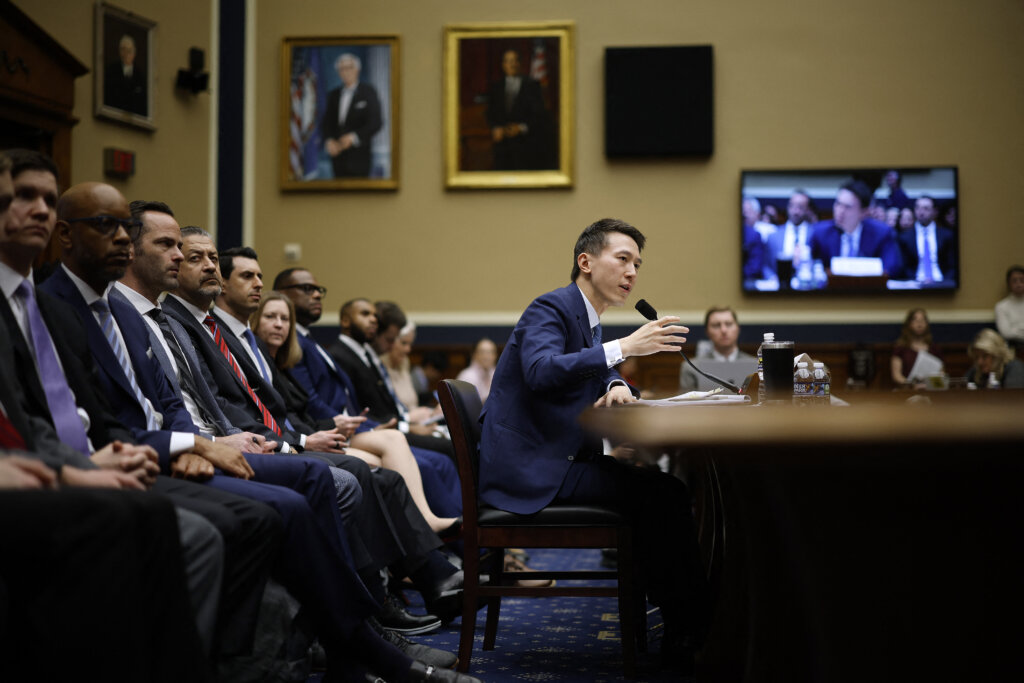Congress may be done grilling the CEO of TikTok but the worst is not over

Last week, TikTok CEO Shou Zi Chew unveiled the fact that the app has reached the milestone of having more than 150 million users in the United States. That number represents nearly half of the country’s population, making the US home to the majority of TikTok’s users worldwide. That paints a picture of how well-received TikTok by to most Americans – outside of the government, at least.
READ NEXT

UK bans TikTok on government phones
The same week, on March 24, 2023, the CEO was thrust into the middle of souring US-China relations and faced a hostile House panel that grilled him over the popular app’s ties to China, and particularly the Chinese government. The five-hour questioning saw Chew reassuring Americans that their data is safe and Beijing is not able to influence what viewers see on TikTok.
The direction for the Biden administration is clear: get TikTok’s Chinese owner ByteDance to sell the company or face a ban. The idea of selling TikTok, as expected, was highly opposed by China just hours before Chew testified. That further riled up US lawmakers, who went on questioning Chew contentiously, targeting the app’s relationship with China and seeking protections for its youngest users.
“Welcome to the most bipartisan committee in Congress,” Rep. Buddy Carter told TikTok CEO a couple of hours into the marathon hearing, peppered with withering attacks from both Democrats and Republicans. “We may not always agree on how to get there, but we care about our national security, our economy, and we sure as heck care about our children,” Carter said.
The CEO of TikTok had little to no reprieve during the questioning from either side of the aisle last week. Overall, Chew was grilled on the app’s potential to harm young users through its “addictive features and potentially dangerous posts,” as well as whether data from US users could end up in the hands of the Chinese government through its China-based owner, ByteDance.
It came to a point where aides to the Republicans who control the committee said there is essentially nothing the TikTok CEO can say that would change their minds as they threaten a nationwide ban. This is despite Chew’s opening statements that reassured the committee of the company’s effort to safeguard minors, bolster its privacy and security practices, and ward off any possibility of “unauthorized foreign access” to US user data.
“… I understand that there are concerns stemming from the inaccurate belief that TikTok’s corporate structure makes it beholden to the Chinese government or that it shares information about US users with the Chinese government,” Chew said. “This is emphatically untrue.”
What is next for TikTok CEO and the app in the US?

WASHINGTON, DC – MARCH 23: TikTok CEO Shou Zi Chew testifies before the House Energy and Commerce Committee in the Rayburn House Office Building on Capitol Hill on March 23, 2023 in Washington, DC. The hearing was a rare opportunity for lawmakers to question the leader of the short-form social media video app about the company’s relationship with its Chinese owner, ByteDance, and how they handle users’ sensitive personal data. Some local, state and federal government agencies have been banning use of TikTok by employees, citing concerns about national security. Chip Somodevilla/Getty Images/AFP (Photo by CHIP SOMODEVILLA / GETTY IMAGES NORTH AMERICA / Getty Images via AFP)
To say that TikTok is losing its prominence in the US would be a blatant lie; the viral video app has only been garnering an increasing number of users annually. For perspective, in 2021, TikTok had approximately 86.9 million users in the US. At that point in time, the figure was projected to increase by around eight percent year-over-year, reaching 94 million users by 2022.
However, the latest data by TikTok indicated that from 2021 to 2023, the video app has seen an almost 73% increase in American users. So since one in three Americans uses TikTok, a ban on such a popular app would be unprecedented in the US. The only country that has gone as far as banning the app countrywide is India.
When the Indian government banned TikTok, it disabled downloads and demanded that internet service providers (ISPs) block it altogether. This made it more difficult to access the app or website from most ISPs in India – but there are some workarounds. Some people have used virtual private networks (VPNs), but more is needed to circumvent the ban.
According to TikTok’s help page, it collects information on your approximate location by checking your SIM card and IP address. If your device’s phone number begins with +1, TikTok knows you’re in the US and could block your machine from accessing the app. So far, it remains to be seen if TikTok will work with the US government, or decline to assist with any measures. Instead, it allows people in the US to use the platform so long as they can find workarounds to access it.
YOU MIGHT LIKE

FAC hands Biden permission to ban TikTok
So far, TikTok’s proposed fix is Project Texas. This US$1.5 billion plan would rely on contracts with the Texas-based tech company Oracle, using a “firewall that seals off protected user data from unauthorized foreign access.” According to Chew, who said “legacy US data” was still being deleted from old servers in the US and Singapore, the project is already active but not yet complete.
Regarding broader social media issues, like the ability to moderate misinformation, harmful messaging, and content that is not age-appropriate, Chew responded that TikTok employs 40,000 moderators to track harmful content and an algorithm to flag controversial material.
He added that the company would even use “third-party validators” to review its algorithms and provide access to researchers to “study and monitor our content ecosystem.” In 2020, TikTok successfully challenged the Trump administration’s attempt to block the app, ultimately dissipating that first US attempt to exert influence over ByteDance’s most significant creation.
But the TikTok CEO was right when he said, “I don’t see a clean, pretty solution to this.” According to Bloomberg, quoting Alex Capri, a Singapore-based research fellow at the Hinrich Foundation, TikTok may ultimately have to take its case all the way to the US Supreme Court, essentially getting a judge to say that a forced sale is either unconstitutional or depriving people of their livelihoods.
What is certain is that there would be broader implications for other Chinese apps that cater to the American populace, including Shein and PDD Holdings Inc’s Temu, which launched mere months ago. But the idea of a national ban still faces significant hurdles, both legally and in the court of public opinion.








